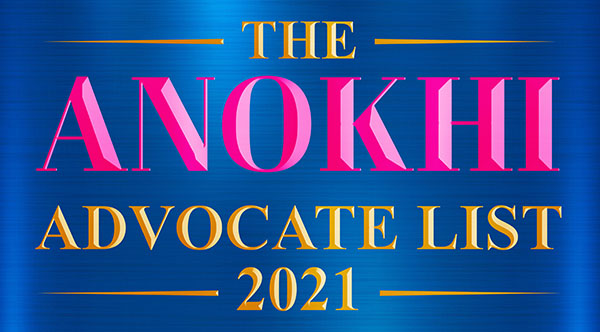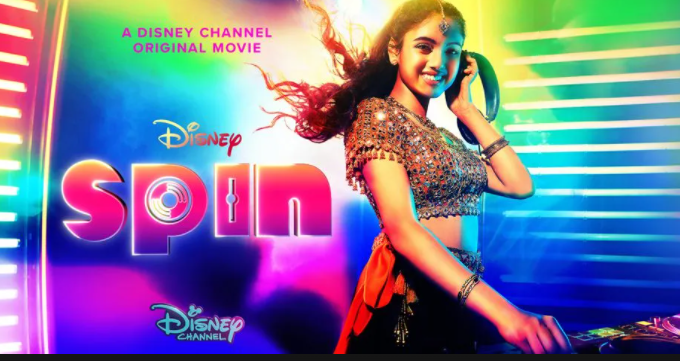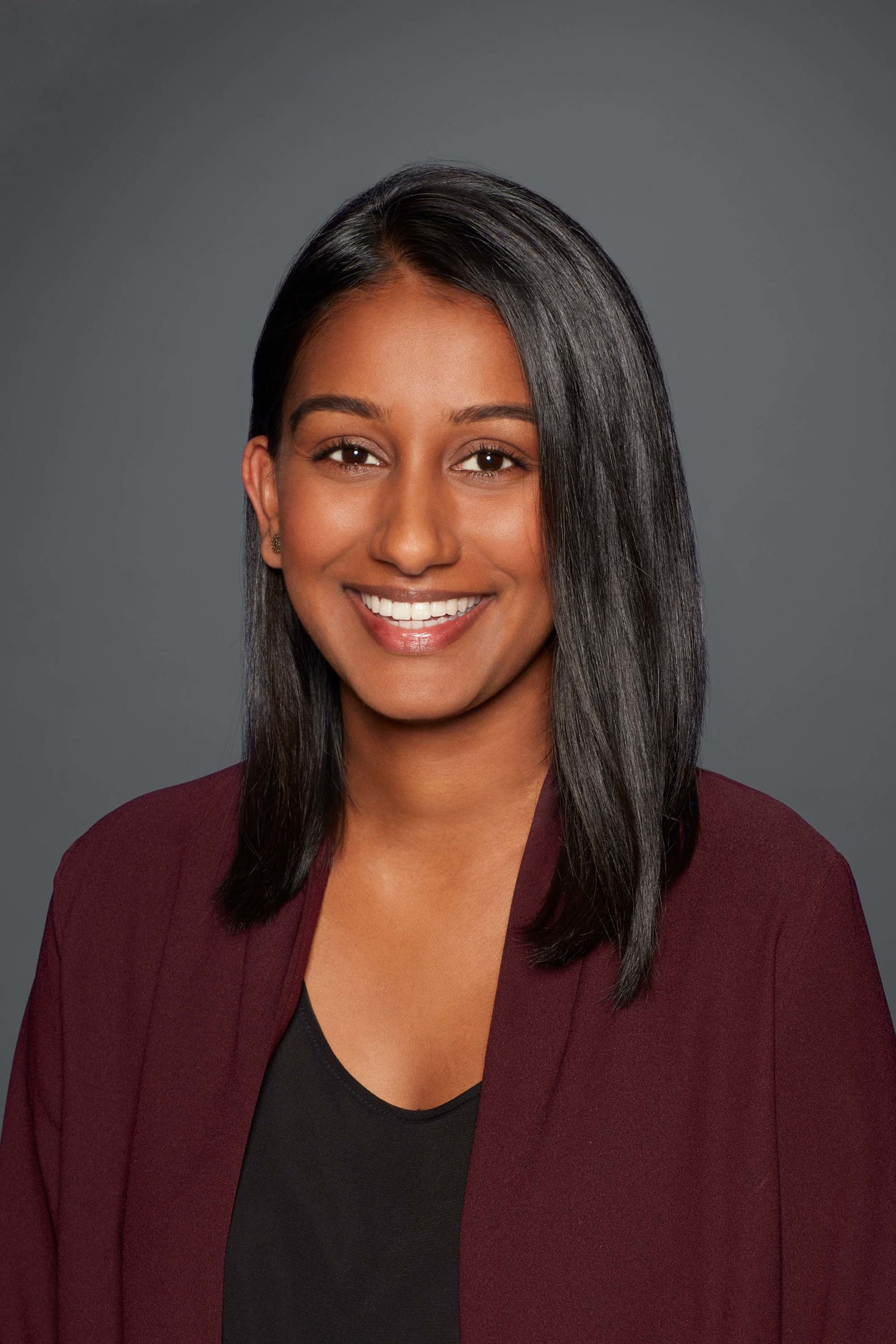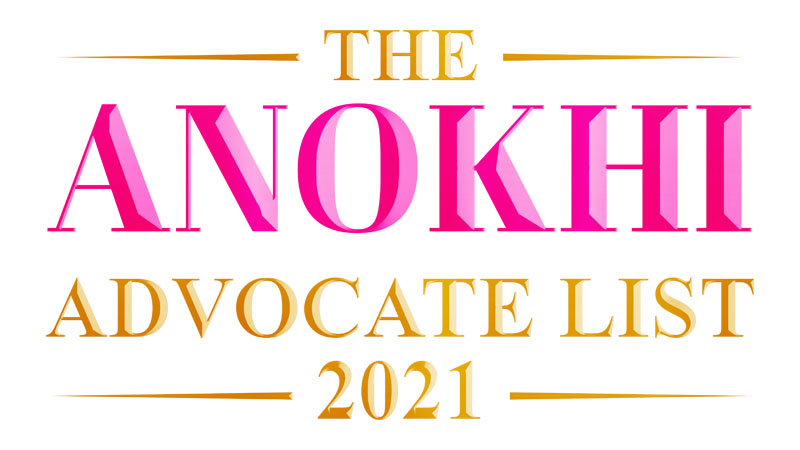A native of the San Francisco Bay area and a graduate of USC’s School of Cinematic Arts, Mahita Penke joined Disney Branded Television (DBT) in 2018. At DBT, she oversees kids and family movies including the popular Zombies and Descendants franchises, the newly announced From the Desk of Zoe Washington and the recently released Spin.
Penke started her career at Heel & Toe Films where her projects included “Dr. Del” starring John Hawkes as well as “The Eighth.” Following her time there, she spent three years at Skybound Entertainment where she managed creative development for the company’s multi-platform division. During her time at Skybound, she produced VR experience “Dinner Party,” which toured over 20 festivals including Sundance New Frontiers, SXSW, Wonderspaces and Engadget.
As a former “DCOM kid,” Penke is thrilled to have played a part in bringing Spin to life.
Raj Girn: Welcome to The ANOKHI Uncensored Show folks. I’m thrilled to have Mahita Penke, Director of Original Movies at Disney on the show. She was instrumental in the creation of their hit feature film Spin, which showcased a South Asian coming-of-age story.
Thank you, Mahita for agreeing to be a part of The ANOKHI ADVOCATE List 2021,on behalf of Disney, who is being honored this year for their valuable contribution to advocating diversity in entertainment to commemorate this year’s 19th anniversary of the ANOKHI brand, I’m so happy to have you on to talk about the power of advocacy in today’s world. Welcome!
Mahita Penke: Thank you so much for having me. It’s a pleasure to be here.
RG: I’m going to just jump right in then. First of all, I want to ask you, I’m really curious to know your personal advocacy philosophy. Can you share a bit about that before we do anything else?
MP: So for a little bit of context. I work on the Original Movies Team at Disney Branded Television, and I was lucky enough to be one of the creative executives on Spin, alongside my colleague Lauren Kisilevsky. My team and I oversee content that’s geared towards kids, tweens and families. And so to answer your question, to me broadly, advocacy means pushing forward diverse, equitable and authentic representation and storytelling. But specifically, what that looks like to us is multi-pronged.
We believe that advocacy comes in many forms. It means elevating underrepresented voices and diverse talent from multiple axes of diversity both in front of and behind the camera, but also championing stories for kids and families that are both accessible and uplifting, but also challenge conventional narratives and perceptions.
RG: Disney’s definitely been doing that of late, it’s incredible. And how does what you believe in translate over into your role at Disney, specifically?
MP: It translates over pretty exact and pretty perfectly. As I mentioned before, we really want to tell stories that show just a wide spectrum of families and friendships and relationships that both reflect and meet our audience where they are today. But we also want to normalize and demonstrate that these things that are so important in someone’s life, like dreams and communities and love, these things can come in all sorts of different shapes and sizes. And personally I really hope that with the work that we’re doing at Disney Branded Television, we can help our audience learn that they don’t have to be confined or defined by a single identity story, and they don’t have to confine themselves to paradigms that they don’t relate to or they’ve outgrown. And, you know, maybe a little cheesy to say this, but I really do believe that representation can open the door to self-actualization and self-discovery. And these are some of the most important journeys that a young person or really any person can go on
RG: Being a part of the Disney family Mahita, what have you learned about what advocacy means to them?
MP: As you know, there have been all of these industry-wide conversations about the importance of representation in media. I genuinely believe that representation in kids and family content is really where it all starts because we know that we have just a tremendous amount of responsibility when we make content for young viewers that through meaningful representation, we have an opportunity to have just a real, tangible impact on their self-perception, their self-confidence and just the way they move through the world. And that’s it. That’s a huge responsibility, but it’s also a huge opportunity. And I think for my team, it’s not just about universality and kids and families being able to see themselves reflected on screen, which is incredibly important and certainly a core tenet of what we do, but it’s also about them being able to see stories on screen that feel unfamiliar to them or characters whose experiences feel entirely different from theirs and being able to fall in love with them anyway.
So relatability is just so important. Fostering that empathy and curiosity towards the things that our audience doesn’t understand, that’s just as important. And we really have the opportunity to foster that understanding and empathy and in both an accessible but a pretty profound way.
RG: So why is advocacy and diversity, which is what you’ve just finished talking about, so important to Disney as an entertainment content creation and curation platform?
MP: Our goal as a company and as a division is really to be the best home for talent. And that means that every single day we strive to be a culture that embraces inclusion. And that means it’s a place where people can both be themselves and see themselves, and I think the spirit of that really filtered into every aspect of Spin. Our primary goal — my primary goal was really to support the vision of my brilliant filmmaker Manjari Makijany and our creative team, which includes our amazing producers and our writers, Josh [ A. Kagan] and Carly [Steiner]. Manjari’s vision for this movie really filtered into every aspect of the creative storytelling, from story to completion. She’s just this incredibly talented, incredibly dynamic filmmaker. And it was really such an honor and pleasure to work alongside her, and she, along with our casting team, also championed this incredible international ensemble, as you know, from so many different backgrounds. There’s Abhay Deol who is, you know, is Bollywood royalty. There is Meera Syal who comes out of the U.K. there’s Aryan Simhadri, Michael Bishop and Anna Cathcart. And needless to say, Avantika is a breakout star of this movie. Having such a dynamic international cast, but also actors who come from across the Indian diaspora that really informed the nuances and really made every aspect of this movie, what it is.
I really do believe that representation can open the door to self-actualization and self-discovery. And these are some of the most important journeys that a young person, or really any person can go on.
RG: How did the idea of South Asian representation specifically become important to Disney? Because, you know, we have Mira, Royal Detective, which is tremendous so many voices, narratives and representation of the South Asian community was really brought into mainstream society for the first time by Disney. I’d love for you to know why it’s important to Disney. I feel that you’ve answered the question, but I’d love to specifically ask it to you, to do with the South Asian representation piece because diversity is huge for Disney.
MP: Absolutely. In terms of South Asian representation in particular, I think it’s all a part of this realization that we need to have multiple narratives coming out of every community. To speak to this from a personal perspective, I’m Indian-American, I grew up on Disney. Disney Channel original movies were a staple of my childhood. But despite how much I adored and continue to at the movies that I grew up on, I don’t think I ever really saw any meaningful representation of my identity and the content I watched. And frankly, I didn’t see much meaningful representation period, until I was much older, and a lot of those had a tendency to skew towards these singular narratives, right? And a lot of narratives are about cultural conflict. While there are certainly a lot of myself and I think many people could see in those narratives, there was also a lot I couldn’t. All that to say, I think anyone who has yearned for representation that they didn’t have will treasure every instance of the representation that they see. And it wasn’t incumbent upon any of those stories to be everything to everybody. But, you know, because there were so few narratives, I personally couldn’t see the multitudes of my identity reflected in them, and that led a lot to be desired.
This change is really being driven both by people who are passionate about this in the industry, who have had the firsthand experience of really lacking that representation, but also on a global level, I think that everyone is coming to realize just how potent and powerful representation can be. And I have a I have an eight-month-old niece, and I have a four-year-old nephew, and they’re just these sponges for information. And I feel the urgency. I feel like it’s more important than ever to make sure that they grow up with multiple representations of multiple aspects of their identity and in particular, a representation of a really tight-knit, multi-generational family, which looks and feels similar to theirs.
And just to talk about Spin for a second, we really set out to make a fun, accessible and inspirational story, but we also saw an opportunity to really challenge common tropes and binaries that we’ve seen in South Asian depictions in media. We didn’t want to center this story around cultural conflict. We wanted to move away from the idea that there’s any sort of push and pull between our lead character’s Indian identity and her American identity. And this isn’t because cultural conflict is bad, but we’ve just seen so many of those stories that we wanted to put forth something that felt different. Our lead is someone who is very comfortable in her skin. She really embraces the fluidity of her cultural identity, and her journey is about self-discovery, it’s about pursuing her dreams, it’s about overcoming grief. And while her Indian-American heritage certainly informs every aspect of that journey, it’s never the central focus or the point of her journey.
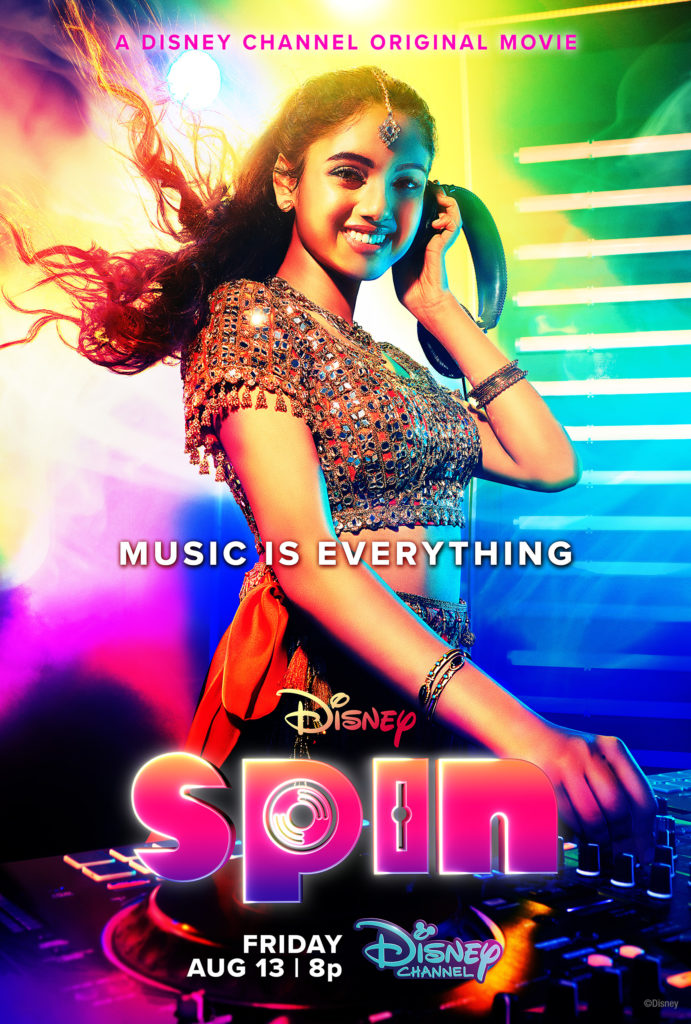
And in addition to this, she comes from a supportive, a modern, multi-generational family that has a real love of the arts that’s imbued within them. And this this is kind of a smaller binary that we tried to tackle. But she she has a real interest in a love of stem and coding, and this informs her love of music. And even though that might not be as big of a point that we made through the movie, it’s I think it’s still worth getting across that there are so many things that are not mutually exclusive to each other, right? Yes, many false paradigms. There’s so many false binaries that everyone has sort of absorbed, and we’re just now starting the process of undoing them. And I’ll say one last thing, which I think was just my favorite aspect of this story, which is that the winner of this story in particular, isn’t the win of a romantic relationship, and that was a very intentional choice. The winner of this story is that this young woman, Rhea, our lead, she stands up for herself. She stands up for her integrity. She overcomes her fears. She pursues her dreams. And she’s learning and hopefully showing our audience that really one of the most important relationships you can have through the course of your life is the one you have with yourself.
I have an eight-month-old-niece, and I have a four-year-old nephew, and they’re just these sponges for information. And I feel the urgency. I feel like it’s more important than ever to make sure that they grow up with multiple representations of multiple aspects of their identity and in particular, a representation of a really tight-knit, multi-generational family, which looks and feels similar to theirs.
RG: Absolutely. So well said. And you know, it begs me to ask you my next question, which is, can you share why it’s so important for people to incorporate a sense of advocacy into their lives? I mean, whether it’s personal, professional and or spiritual? What are your thoughts around that?
MP: I think this one is a short and sweet answer for me, which is that I think real advocacy requires us to challenge and unpack a lot of our own conditioning and biases. It really requires us to get to the heart of the issue, the root of the issue and define what we truly value in life. And I think that there is there isn’t a more worthwhile endeavor than pursuing that.
RG: Absolutely. So well said and I completely agree with you. Let’s talk about how important advocacy has been in the last year, Mahita. We’ve seen so much going on in the narrative of identity as it pertains to social media. And we all know that social media has a way of amplifying people’s opinions. It’s a soapbox if for a want of a better way of describing it. What have you seen that stood out for you specifically where changes are concerned, to meet people where they’re at, rather than kind of pushing institutionalized agendas that we’ve all been kind of accustomed to. We’ve all grown up with conditioning, right? Doesn’t really align with fostering individualism. What are your thoughts around what you’ve seen happening out there in social media, just because it’s a place where we can actually tell people how we feel about ourselves and our narratives?
MP: I want to answer this in a bit of a two-fold way. One that feels very relevant to our line of work, which is really for kids and families. And I think our audience is quite active on on social media and our audience is really, to me, a big source of inspiration. Our viewers, especially our young viewers, they think and they feel so expansively. They’re shedding themselves of a lot of baggage and all of these binary ideas that previous generations were trapped in. And you can really see this play out on every one of these platforms. They’re exploring their identities, their open, their friend groups are diverse, their interests are diverse, and they’re just so innovative and resourceful. It’s really amazing and inspiring to make content for this demo in particular.
And the other thing I’ll say is it’s just so exciting to see so much media and art that’s coming from the South Asian community that really shows just the multitudes and all of the intersections of South Asian identities. I feel like I’m at a point where I can’t get enough. It’s just so essential that we have as many narratives as possible, coming out of every community and social media is just an incredible tool to really amplify that.
RG: And to just allow us to step into somebody else’s world and narrative that, you know, we would never otherwise have exposure to. And I think that’s also a way to widen and open our minds up to what realities are happening out there where narratives and identities are concerned. We do live in exciting times, and I think it’s all a matter of how we decide to create intention around the information that we see going on out there. And I think that’s a big part of what Disney does as well. You guys are very intentional with what messaging and what stories you want to relay. I really do see that you guys are being intentional with that. So I want to ask you — because we all have something that we advocate for — I’m curious from your perspective, what challenges have you had to overcome when it comes to voicing your support for a cause that you believe in?
Our viewers, especially our young viewers, they think and they feel so expansively. They’re shedding themselves of a lot of baggage and all of these binary ideas that previous generations were trapped in. And you can see this play out on every one of these platforms. They’re exploring their identities, their open, their friend groups are diverse, their interests are diverse, and they’re just so innovative and resourceful. It’s really amazing and inspiring to make content for this demo in particular.
MP: I think that any work doing like this work, furthering the work of representation, it’s going to be an ever-evolving process. I think looking at it as a challenge sort of suggests that there’s an end in sight. So I choose not to really look at it that way. I look at it as a process. I look at it as an opportunity. And when you work in media in particular, I think you’re always walking this tightrope between in culture and enforcing it, right? Yes. And that’s such a delicate balance. And at a company like ours where we make media that’s really built on hope and inspiration and optimism. We both have a responsibility to reflect our audience, so they have a point of entry. But we also have a real opportunity to define and shape what it means to, to dream, to thrive and to belong. And I think that is an incredible opportunity. And it’s not going to involve just one challenge. It’s going to be an ever-evolving process. I try to sort of condition myself out of looking at anything as having sort of a finite end, which is really to gear up for that longer process, that longer journey.
RG: I love that answer. It’s just incredible. So I want to ask you this as we get ready to close off with all that you have seen and experienced, what advice would you give to everyone watching, listening and reading this who want to be more proactive in a cause that they believe in to actually get up and action it?
MP: I think I’d give the same advice that I’ve been given. I listen to my elders. I remind myself of this as much as I can, which is, when you find something that you believe in and you’re really passionate about, do your research, listen to the wisdom of people who came before you and especially to other voices and changemakers who exist in that space as guidance. and try to dig beneath the surface of the causes that you’re passionate about to really get to the heart of what you value. I think it’s really easy to become rigid and make some of your beliefs a part of your identity. But being open to having your mind change is so crucial because the work of advocacy is very fluid and it’s easy to get stuck in the hashtag and some of the more performative aspects of advocacy because they just give you an immediate sense of gratification that feels good. But I think it’s always important to ask yourself what the next step is and find ways to tangibly get involved in the things you care about.
RG: Absolutely. Mahita what an absolute pleasure. Thank you so much for sharing your perspectives and your insights. It’s just been incredible listening and to know where you’re coming from as an individual in your own right, as well as how it translates over in the macro-picture picture where Disney is concerned. We are super happy to have you give us all of this information for people to really kind of sit back with and understand truly how kind of visceral and intentional the work is that Disney does. Thank you for sharing your perspectives with our global audience. And again, congratulations to Disney for being one of our valued honorees of The ANOKHI ADVOCATE List 2021. Thank you so much for your time.
MP: Thank you so much.This was such a pleasure, and I love this conversation. Thank you.
